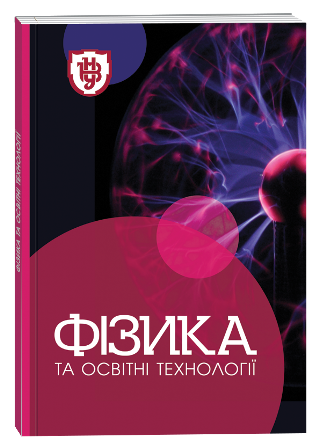DEVELOPMENT OF COGNITIVE ABILITIES OF STUDENTS UNDER THE INFLUENCE OF DIFFERENT GENRES OF MUSIC
DOI:
https://doi.org/10.32782/pet-2025-1-11Keywords:
cognitive functions of the brain, music genres, students, concentration, attention span, attention span, attention switchingAbstract
The main cognitive functions of the brain are perception, memory, thinking and attention. At the initial stage of perception, the first signaling system prevails, i.e., the sensation of sound, light, chemical and other stimuli by our analyzers on the basis of an unconditional orienting reflex. From the point of view of the physiology of nervous activity, attention is a process of consciously focusing on relevant information, initiating mechanisms of memorization and movement, and forming new connections between excited neurons. From the psychological point of view, attention is a factor that determines the selectivity of perception. The physiological basis of concentration is the activation of certain cortical centers. Selectivity is a defining feature of attention.Therefore, the purpose of the study is to investigate the musical preferences of adolescents and to determine the influence of different genres of music on the development of high school students’ attention.In the life of modern adolescents and young people, music culture is an important means of communication and influence on the emotional state of a person. Modern research shows that a well-chosen composition can both activate and inhibit the assimilation of information.This article presents detailed results of research on the impact of different genres of music on the development of cognitive functions of the brain.The study experimentally proved the positive influence of different genres of music, namely: popular (pop), rock, electronic, classical on the dynamics of students’ attention parameters.The analysis of the influence of music as a factor suggests that it generally increases the effectiveness of the cognitive functions of the brain of high school students, in particular such properties of attention as concentration, volume, and switching. Taking into account the musical preferences of the administration of educational institutions, reflected in the form of the author’s music playlist “Listen and Learn” and the studied patterns, will help to organize comfortable learning and recreation conditions, as well as develop innovative methods to improve the efficiency of perception of educational material.
References
Бондаренко М. П., Кравченко В. І., Бондаренко О. В., Макарчук М. Ю. ЕЕГ – кореляти аналізу інформації при проходженні емоційного Струп тесту на фоні пред’явлення зображень IAPS. Вісник Черкаського університету. Серія : Біологічні науки. 2016. № 1. С. 7–18.
Єльчанінова Т. М. Розвиток уваги першокласників у період адаптації до навчання : автореф. дис. … канд. психол. наук : 19.00.07. Харківський нац. пед. ун-т ім. Г.С. Сковороди. Х., 2011. 20 с.
Котова О. В., Суханова Г. П. Взаємодія музики і здоров’я як чинник фізичного розвитку дітей. Актуальні проблеми фізичного виховання студентів в умовах кредитно-модульної системи навчання : матеріали Всеукр. наук.-практ. конф. (Дніпропетровськ, 10-11 квітня 2014 року). Дніпропетровський національний університет імені Олеся Гончара, 2014. С. 252–257.
Кравченко В. І., Чернінський А. О., Макарчук М. Ю. Методичні рекомендації до практичних занять з психофізіології для студентів біологічних факультетів спеціальності «фізіологія людини і тварин». К. : ООО «Геопринт», 2010. 74 с.
Москальова А. С., Москальов М. В. Методи психодіагностики в навчально-виховному процесі : навч. посібник. Київ, 2014. 360 с.
Савченко Т. Л. Сучасні напрямки дослідження уваги – психофізіологічні аспекти, теорії функціонування і розвиток властивостей. Актуальні проблеми психології : зб. наук. праць Інституту психології імені Г. С. Костюка НАПН України. 2019. Вип. 19. С. 19–208.
Вікова та педагогічна психологія : навч. посіб. / Скрипченко О. В., Долинська Л. В., Огороднійчук З. В., Лисянська Т. та ін. Київ : Просвіта, 2001. 416 с.
Шевчик Р. В. Дослідження та корекція уваги у підлітків. Психологія: реальність і перспективи. 2015. Вип. 4. С. 288–292.
Bonneville-Roussy A., Rentfrow P. J., Xu M. K., & Potter J. Music through the ages: Trends in musical engagement and preferences from adolescence through middle adulthood. Journal of Personality and Social Psychology. 2013. 105(4). 703–717. https://doi.org/10.1037/a0033770
Chamorro-Premuzic T., Fagan, P., & Furnham A. Personality and uses of music as predictors of preferences for music consensually classified as happy, sad, complex, and social. Psychology of Aesthetics, Creativity, and the Arts. 2010. 4(4). 205–213. https://doi.org/10.1037/a0019210
De Bettencourt M. T., Cohen J. D., Lee R. F., Norman K. A. Closed-loop training of attention with real-time brain imaging. URL: http://www.nature.com/neuro/journal/v18/n3/full/nn.3940.html
Gaspar J. M., McDonald J. J. Suppression of Salient Objects Prevents Distraction in Visual Search. The Journal of Neuroscience. 2014 (16). URL: http://www.jneurosci.org/content/34/16/5658
Hameroff S., Penrose R. Reply to criticism of the «Orch OR qubit» – «Orchestrated objective reduction» is scientifically justified» Physics of Life Reviews. 2014. (11). P. 104–112. URL: http://www.quantumconsciousness.org/ sites/default/files/
Kabat-Zinn J. Mindfulness Meditation: 8 Quick Exercises That Fit into Your Day. URL: http://www.spring.org. uk/2014/04/mindful-ness-meditation-8-quick-exercises-that-easily-fit-into-your-day.php
Marcelo Bigliassi, Costas I. Karageorghis, Daniel T. Bishop, Alexander V. Nowicky, Michael J. Wright. Cerebral effects of music during isometric exercise: An fMRI study. International Journal of Psychophysiology. 2018. V. 133. P. 131–139. URL: https://www.researchgate.net/publication/
Stroop J. R. Studies of interference in serial verbal reactions. Journal of experimental psychology. 1935. № 18. P. 643–662.
Thomas Schäfer, Claudia Mehlhorn. Can personality traits predict musical style preferences? A meta-analysis. Psychology. Personality and Individual Differences. 2017. URL: https://www.sciencedirect.com/science/article/abs/pii/S0191886917303215








